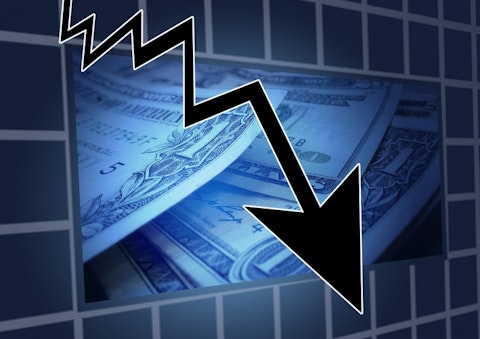Fitbit Inc (NYSE:FIT) shares went down as much as over 10% in early trading today even though the firm reported blowout figures for its first quarter as a publicly-traded company. After markets closed yesterday, the wearable gadgets maker reported adjusted profit of $0.21 per share on $400 million in revenue for the second quarter, very much above the consensus estimates of $0.08 earnings per share on $319 million in revenue, according to data from Thomson Reuters. It should be noted that the revenue posted by the firm for the just-ended quarter more than tripled from the same quarter last year, an indication that the company’s wearable devices are holding their own against competitors in an increasingly crowded wearables segment.

Not that the firm is having big problems at the moment. Fitbit Inc (NYSE:FIT) reported that it sold 4.5 million devices in the second quarter, a fact that should make investors like John Griffin’s Blue Ridge Capital very happy. Fitbit sold just 1.72 million devices in the same quarter last year. Blue Ridge is the first hedge fund to disclose a stake in the wearables company when it revealed last month that it owned 3.5 million shares of Fitbit, an 8.32% passive stake in the firm.
Follow John Griffin's Blue Ridge Capital
An everyday investor does not have the time or the required skill-set to carry out an in-depth analysis of equities and identify companies with the best future prospects like a fund with the knowledge and resources can. However, it is also not a good idea to pay the egregiously high fees that investment firms charge for their stock-picking expertise. Thus, a retail investor is better off to monkey the most popular stock picks among hedge funds by him or herself. But not just any picks, mind you. Our research has shown that a portfolio based on hedge funds’ top stock picks (which are invariably comprised entirely of large-cap companies) falls considerably short of a portfolio based on their best small-cap stock picks. The most popular large-cap stocks among hedge funds underperformed the market by an average of seven basis points per month in our back tests, whereas the 15 most popular small-cap stock picks among hedge funds outperformed the market by nearly a percentage point per month over the same period between 1999 and 2012. Since officially launching our small-cap strategy in August 2012 it has performed just as predicted, beating the market by over 66.5 percentage points and returning over 123.1%, while hedge funds have collectively underperformed the market (read more details here).



